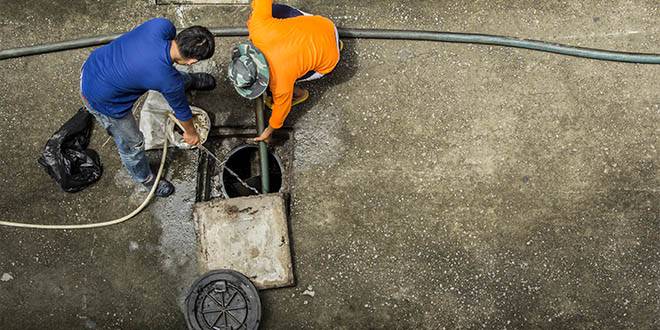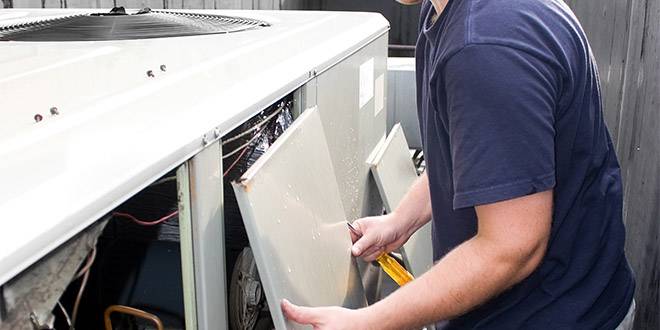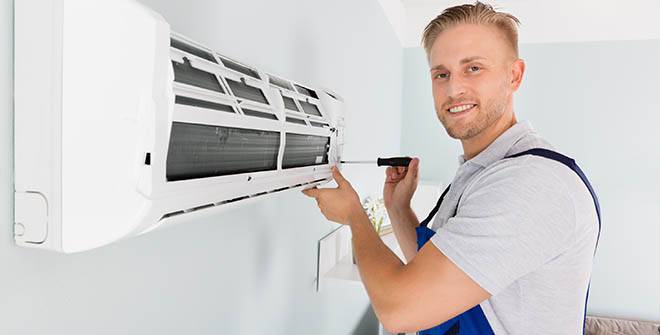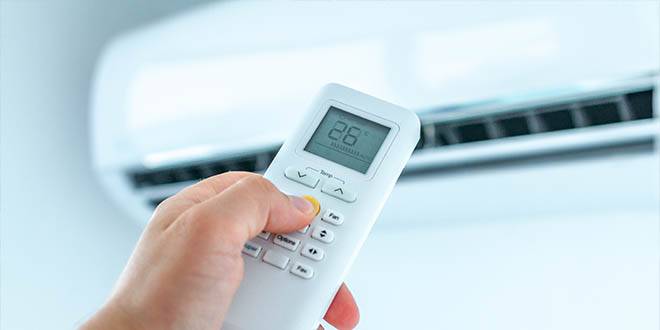Are you tired of feeling dried out and uncomfortable in your own home during the summer months? Our climate here in Georgia is one of the driest in the country and in the summer, air conditioner use makes humidity fall even lower. Although dry air feels cooler, anytime the indoor humidity drops below 30 percent, people and structures suffer.
At Zen Air Heating & Cooling, we understand how important it is to maintain a comfortable indoor environment. That’s why we are here to address your concerns about air conditioning and its effects on the air in your home.
Contact our expert team today to learn more about complete air conditioning services!
The Impact of Air Conditioners on Humidity

Regular maintenance and proper usage of air conditioners can help maintain a comfortable humidity level. It is also advisable to use additional devices like humidifiers to balance the moisture in the air when using air conditioning. These measures can ensure that the air in your home remains at an optimal humidity level, preventing the negative effects associated with very dry air.
Here are a few things to keep in mind about air conditioning and humidity levels.
Reduce humidity levels.
Air conditioning has the ability to make humidity levels drop in a room or building, creating a less-than-comfortable indoor environment. As warmer air is cooled by the air conditioner, condensation occurs, removing moisture from the air. This can be particularly beneficial in areas with high levels of humidity.
However, it’s important to find a balance, as excessive use of air conditioners can lead to very low humidity levels, resulting in dryness and discomfort. This is especially true in drier areas like where we live. By maintaining a moderate humidity level, you can ensure optimal comfort and health in your space.
Prevent the growth of mold and mildew.
Air conditioners play a crucial role in preventing the growth of mold and mildew, ensuring a healthier indoor environment. Air conditioners remove humidity, making it less hospitable for mold and mildew to thrive.
It is recommended to use additional methods like humidifiers or opening windows when possible to maintain a moderate humidity level. Regular maintenance of air conditioning systems further aids in preventing excessive dryness and its associated problems.
Improve indoor air quality.
When using air conditioning, it’s not just about cooling the air. It’s also about improving the quality of the air you breathe. Air conditioning systems are designed to filter out dust, allergens, and pollutants from the air, providing cleaner indoor air. This is especially beneficial for individuals with respiratory issues or allergies.
In addition to reducing humidity levels and preventing mold growth, air conditioning helps maintain a comfortable and healthy environment by improving indoor air quality. By removing airborne particles and pollutants, it helps to alleviate symptoms such as coughing, sneezing, and irritation.
Increase overall comfort and productivity.
Of course, during the hot summer months, one of the main benefits of air conditioning is the increased comfort it provides. By keeping the temperature at a comfortable level, your air conditioner can create a more pleasant environment, allowing you to relax and enjoy your space.
Moreover, air conditioning can also have a positive impact on productivity. When you’re working or studying in a cool and comfortable environment, it becomes easier to concentrate and stay focused on the task at hand. This can lead to increased productivity and better overall performance.
5 Effective Tips for Maintaining Optimal Humidity in Your House

Air conditioners remove humidity (also known as water vapor), from the air as a natural byproduct of cooling. When the air hits the cold evaporator coil inside the air handler, the air conditioner makes the humidity condense on the coil and drain into the pipe that exits outdoors.
Maintaining optimal humidity in your house is crucial for creating a comfortable indoor environment. Here are 5 effective tips to help you achieve and preserve the perfect balance:
Utilize Fans and Humidifiers
Try using the kitchen and bathroom fans whenever you can. This is an effective strategy if you live in a small home and cook on a regular basis. Fans help circulate the air, ensuring an even distribution of moisture throughout the room. Also, if the warm air from the air conditioner directly hits your body, it may cause your skin, lips, and hair to become dry.
Furthermore, humidifiers efficiently replenish the moisture in the air and help keep you from feeling dried out. By incorporating fans and humidifiers into your cooling system, you can ensure a comfortable and healthy indoor environment.
Open Windows and Doors
Opening windows and doors can be a helpful strategy in maintaining optimal humidity levels in your house. By allowing fresh air circulation, you can prevent the air from becoming too dry or too humid. This not only helps in controlling indoor humidity but also improves indoor air quality by removing pollutants.
However, it is essential to consider the outdoor temperature and humidity levels before opening windows and doors. This practice can be particularly beneficial during mild weather conditions when the outside air is neither too hot nor too humid.
Monitor Humidity Levels
To maintain a comfortable and healthy indoor environment, it is important to monitor the humidity levels in your home. Air conditioning can result in dry indoor air, which can lead to discomfort, dry skin, and respiratory issues.
For this reason, it is recommended to invest in a humidity monitor. This device will provide you with real-time information about the humidity levels in your home, allowing you to make necessary adjustments to your cooling system or take other measures to maintain a balanced indoor environment.
Change Filters Regularly
Regularly changing the filters in your air conditioning unit is essential for maintaining optimal humidity levels in your house. Ensuring that the filters are clean and unrestricted allows the air conditioner to operate efficiently, preventing the air from becoming too dry.
It is recommended to change the filters every 30-90 days, depending on your usage and the type of filter. By regularly changing the filters, you can maintain the right balance of moisture in the air, improving indoor air quality and preventing issues like dry skin and discomfort.
Need Expert Help? Call Zen Air Heating & Cooling Now!

For expert assistance with your air conditioning system, reach out to Zen Air Heating & Cooling. We specialize in HVAC installation, maintenance, and repairs for both residential and commercial clients. Our team can address concerns about your air conditioning drying out the air in your home or business.
So, if you’re wondering if your air conditioner is making the air in your home too dry, contact our team today for professional guidance and HVAC solutions.




